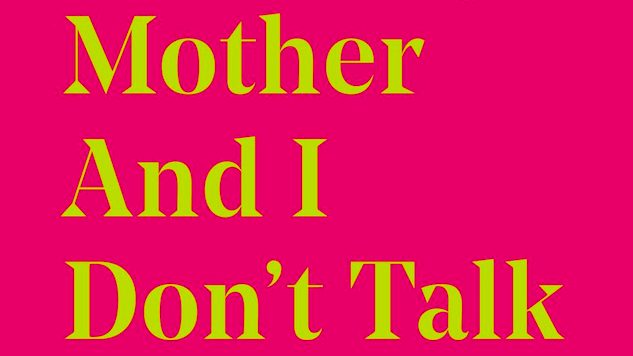What My Mother and I Don’t Talk About Is Necessary Reading for Every Adult

Motherhood is having a literary moment. Long relegated to narratives with limited emotional complexity, moms are increasingly featured in challenging works that interrogate the way we understand motherhood. Fiction and memoir are edging away from the “caregiver-by-nature who possesses an endless reserve of patience” trope, instead embracing the messy truth of the women who raise us.
The new essay collection What My Mother and I Don’t Talk About explores these truths head on. Edited by Michele Filgate and borrowing the title of her viral Longreads essay, the collection features 15 writers tackling the things they resisted speaking about (or still have not spoken about) with their mothers. The essays are as much about being mothered as they are about the mothers themselves, striking an empathetic nerve that all children will find stirring.
 In her introduction, Filgate identifies mother stereotypes and recognizes “few of us can say that our mothers check all of these boxes.” Some of us are mothered by well-intentioned people doing their best; some by those who actively do us harm. No matter our experience, being mothered leaves us with unresolved questions, anxieties and inconsistencies.
In her introduction, Filgate identifies mother stereotypes and recognizes “few of us can say that our mothers check all of these boxes.” Some of us are mothered by well-intentioned people doing their best; some by those who actively do us harm. No matter our experience, being mothered leaves us with unresolved questions, anxieties and inconsistencies.
“In many ways,” Filgate writes, “a mother is set up to fail.”
Mothers tend to exist in a binary: they are good, or they are bad. Perhaps this is rooted in the idea that it’s wrong to highlight our mothers’ flaws; we are meant to protect them as they once protected us. It’s viewed as a betrayal to question our childhoods in the absence of glaring trauma—the old “someone always has it worse” trap is easy to fall into. But by tackling 15 child-mother relationships, this collection reveals that we gain nothing from letting a false sense of competition get in the way of communication. Communication with our mothers, yes, but also an honest dialogue with ourselves about what these relationships mean, how they shape us and where the boundaries rest now that we’re adults.
All of the writers tackle relationships with their biological mothers, unfortunately leaving adopted mothers and non-cis women mothers out of the picture. But the collection still contains a staggering breadth of experience. Brandon Taylor writes about the abuse his mother inflicted on him. Michelle Febos writes about her fear of pushing her mother away in the wake of addiction. Alexander Chee writes about waiting until adulthood to tell his mother about his childhood sexual abuse. Cathi Hanauer writes about finally communicating with her mother when her father isn’t around. Trauma, humor, love, confusion, illnesses physical and mental—the essays run a gamut that leaves the reader emotionally raw.
What My Mother and I Don’t Talk About proves that moms contain multitudes, and it’s a messy business to be raised by such multitudes is. They don’t always make sense. They can hurt us without trying. Just as we struggle to know our mothers outside of their role as “mom,” our mothers struggle to know us outside of our roles as children. If we’re lucky, everyone involved does their best, and their best is good enough. But if it isn’t, we must discover the language to talk about it. Perhaps many of us will stay in silence. But with this collection, a way out is illuminated.
Bridey Heing is a freelance writer based in Washington, DC. More of her work can be found here.